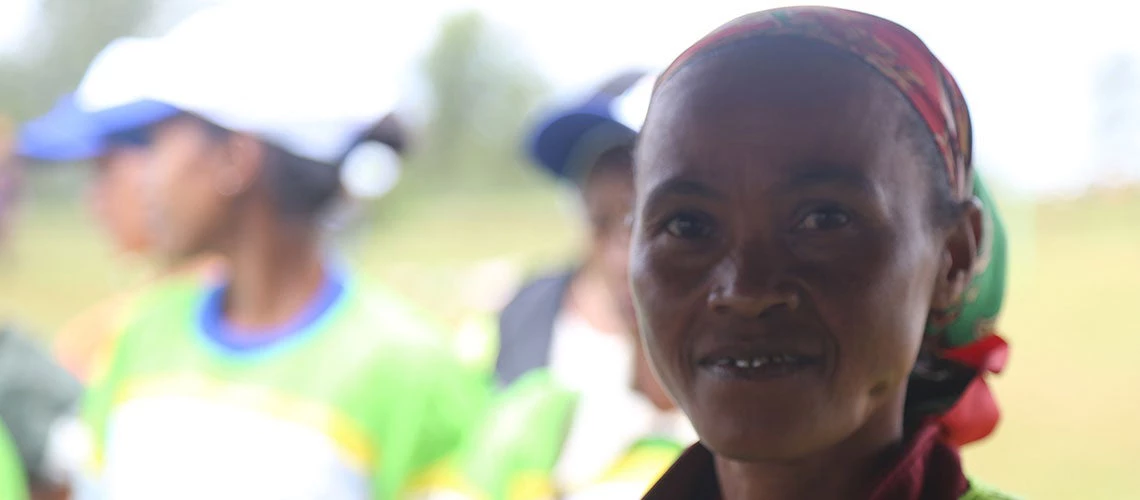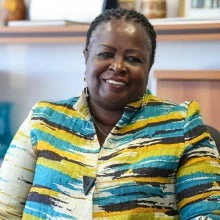 À Madagascar, la place des femmes gagne du terrain
À Madagascar, la place des femmes gagne du terrain
During a recent trip to Madagascar, I traveled about a hundred miles from the capital city of Antananarivo to the small village of Maromoka. While I was there, I met a group of local women, all of whom were beneficiaries of ACTP, one of the social safety net programs run by the government and funded by the World Bank since 2015.
Rangeline Colette, a mother of six children ranging in age from 18 to three years old, has benefitted from the program for three years. Each year, she receives 320,000 ariary (just over $80) and has 80 days of work through the program, paired with training on farming techniques and family and community savings. Eighty dollars a year is not much, but it is making a difference. She told me that with the funds and training she receives, she has not only been able to save money and increase the yield of her small crops, but also for the past two years, she and her family have managed to enroll their five school-aged children in school and buy school supplies on time. She’s even thinking about investing in chicken farming in the near future.
Colette’s story is just one example of why investing in women is such a smart move – and we must do more. Women play a huge role in improving the living conditions of their households and communities, and the right interventions, policies, and behaviors can ensure that women’s potential is not left on the sidelines.
Unfortunately, the barriers to progress for women often seem insurmountable. Women are disproportionately affected by poverty, discrimination and exploitation. In Madagascar, women face economic and political exclusion, and too often bear the weight of stereotypes and socio-cultural norms that hold them back. Among the 151 newly elected deputies in the National Assembly, only 24 are women. There are only six women among the 22 ministers that compose the current government.
Madagascar has one of the highest rates of sexual violence in the world: a third of women aged 15 to 49 have experienced at least one form of gender-based violence. In addition, almost four in ten women marry before the age of 18. In terms of work, men earn 37% more than women. Women are also more affected by unemployment than men: they are 20% more likely to be unemployed than men.
But things are gradually changing. Women’s empowerment has recently become a priority for Madagascar, with the important support of the First Lady who strongly pushed for the adoption of a gender-based violence law in the country. It is the first time that such a law has existed in the country to protect women and children against sexual, social, and economic violence.
During my stay in Madagascar, I had the immense pleasure of interacting with several women who are active and recognized in various fields: members of the government, Parliament, civil society, and the private sector. I also met extremely dynamic young Malagasy women who can bring the country very far. Their courage and willingness to move forward against the constraints they face is encouraging, and the ambition of young women especially will take the country to a whole new level.
Madagascar’s future depends on creating a middle class that will maintain the country’s economic and political stability, which will in turn generate the jobs that Malagasy youth need. Creating this middle class will take time, reforms, and encouragement from the private sector. This will certainly require that women be given far more responsibility, that they be able to exercise their talent in the same way as men, and that they have the same opportunities as men.
If Madagascar can keep taking steps in the right direction, the country can build the future that its people deserve. Just imagine if we invested $100 a year in Colette, rather than $80, and if this was replicated among women across Madagascar – if women and men were equally empowered, the benefits for individuals and communities would be simply enormous. I look forward to seeing what the future holds for Colette, for the other women I met, and for all of Madagascar.


Join the Conversation